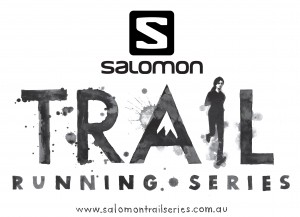

With the final Rapid Ascent trail race of the season upon us, it is important to make sure you finish the season on a high. Running can place high demands on the body, it can lead to stressed tissues resulting in an array of injuries. Some common injuries encountered during trail running include overuse injuries, twisted ankles, cramping as well as cuts & grazes.
This Salomon trail running series has seen the PhysioHealth tent managed plenty of tight calf and achilles complaints, fatigued quads and pain through the lumbar spine. We have found the most common post run massage requested are calves and quads; muscle groups which do a lot more work on the hills.
The most frequent overuse injuries include bone stress fractures, tendinopathies and muscle strains. These can be avoided by slowly increasing your load and not letting niggles remain untreated. Remember if you are heading out on a trail after an injury, don’t go too far out as you will have to make it back, it’s not easy to be picked up from a trail.
Twisted ankles are a major hazard when running on uneven surfaces. Trail shoes provide more stability and support than road shoes but can only do so much in preventing ankle injuries. Working on balance, range of motion, strength and agility in your ankles will help you to deal with the uneven stresses and help prevent rolled ankles. If you roll your ankle on a trail run: remember to protect it from further damage by splinting or taping if required. Get your injury checked by a physiotherapist as soon as possible and in the interim compression, ice and elevation will get you back on the trails faster.
Cramping is another issue that might arise whilst out on the trails. It is most likely caused by an imbalance in electrolytes. Water fountains can be hard to come by on the trails so be prepared prior to your run. Make sure you are balancing your water with salts and electrolytes, this is much more important as we look forward toward hotter weather.
Strength based programs will help you deal with the demands of trail running. Working on hip stability, quadriceps strength and eccentric loading will all benefit your trail running and allowing you to better meet the demands of constant up/down hills, changes of direction and uneven surfaces. Working on lumbar flexibility and strength will also help reduce the stress on the back while running up/down hill and ducking and diving to avoid trees.
Here at PhysioHealth we offer comprehensive screening and strengthening programs specific to running. Screenings are aimed at highlighting potential areas that may need attention, and strengthening these areas to reduce the risk and prevent injuries ever occurring. We also provide rehabilitation programs for post running injuries, aiding recovery and getting you back out enjoying the trails sooner.
Remember when you are training
- gradual loading
- foam rolling and stretching
- get little niggles checked
- add in swimming or some cross training
- most of all have fun on the trails
